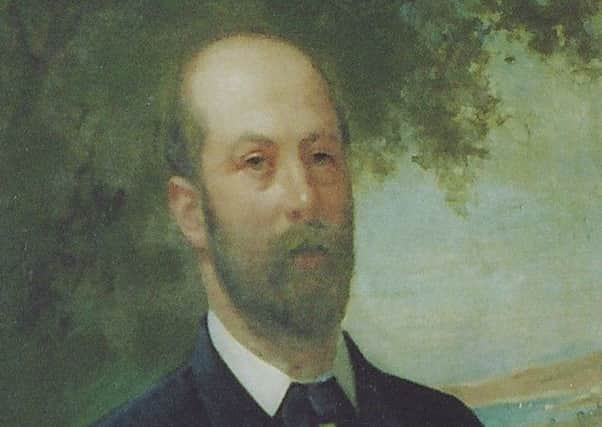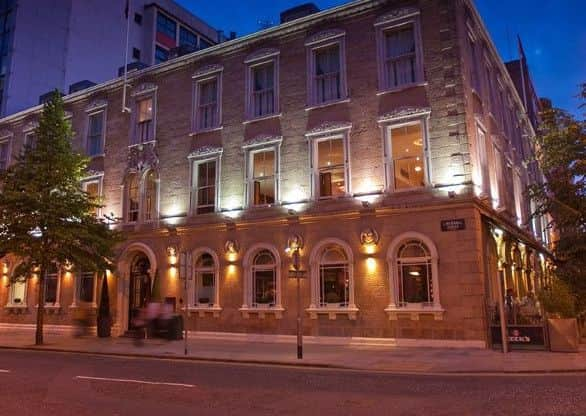Twice elected lord mayor, Sir Otto Jaffe was a great Belfast philanthropist


There was an undercurrent of anti-Semitism in early 20th-century Ireland, much of which was derived from contemporary French Roman Catholicism. This was, after all, the era of the Dreyfus Affair which had polarised opinion in the third French Republic between 1894 and 1906.
In Limerick in 1904 Father John Creagh, a Redemptorist priest, organised an economic boycott of the city’s small Jewish community. The boycott, which lasted two years, was accompanied by physical assault, stone throwing and intimidation. Widely referred to as the ‘Limerick pogrom’, objectively it fell short of what would be conventionally regarded as a ‘pogrom’ – mass violence directed against a religious minority, usually characterised by murder, rape, destruction of property and expulsion. Unhappily events like these were all too common place in Tsarist Russia.
Advertisement
Hide AdAdvertisement
Hide AdAccording to the Royal Irish Constabulary, five Jewish families left Limerick but significantly another 26 families stayed. Arthur Griffith, the founder of Sinn Féin, supported the boycott but Father Creagh was disowned by his superiors, who said that ‘religious persecution had no place in Ireland’.


There seems to have been a stronger strain of anti-Semitism in Limerick than elsewhere. Michael Joyce, the Nationalist MP for Limerick City between 1900 and 1918, was an anti-Semite. He was elected mayor of Limerick in January 1905 and served two successive terms. At least one other Nationalist MP, Eugene Crean, held strongly anti-Semitic views. Some Unionists contended that the ‘Limerick pogrom’ was foretaste of what religious minorities might expect in a Home Rule Ireland.
Admittedly other Nationalist MPs – including John Redmond, Michael Davitt and William Field – held much more enlightened views.
By way of contrast, in 1904, the year of the ‘Limerick pogrom’, Otto Jaffe, a Belfast Jew, was enjoying his second term as the city’s lord mayor.
Advertisement
Hide AdAdvertisement
Hide AdSir Otto Jaffe was born in Hamburg on August 13 1846. In 1852 Daniel Joseph and Frederiké Jaffe, his parents, moved from Hamburg to Belfast to establish a business exporting Irish linen.
Otto was educated at Mr Tate’s school in Holywood, Co Down, Hamburg and Switzerland. In 1879 he married Paula Hertz from New York (where Otto had lived and worked between 1867 and 1877). They had two sons; one became a barrister and the other a company director in London.
In 1877 Otto returned to Belfast to head the family business in Bedford Street, part of Belfast’s ‘Linen Quarter’. Otto’s energy and acumen turned the enterprise into the largest linen exporter in Ireland. Jaffe’s former business premises are now Ten Square Hotel at the back of city hall, a fact commemorated by an Ulster History Circle blue plaque.
Otto was an active member in Belfast’s Jewish community of Belfast. He became life-president of the Belfast Hebrew Congregation, whose synagogue was originally located in Great Victoria Street. His father had founded this synagogue in July 1871. It opened for worship in 1872. Between then and 1903 the congregation increased from 55 to over 1,000.
Advertisement
Hide AdAdvertisement
Hide AdOtto also became prominent in the public life of Belfast. He was elected, as a Unionist, to Belfast Corporation in 1894.
Otto paid most of the £4,000 required to construct the new synagogue in Annesley Street, close to Carlisle Circus. The foundation stone was laid on February 26 1904 and opened for worship on August 31 that year. Otto attended the opening, wearing his mayoral regalia.
The Annesley Street synagogue served as the Jewish community’s place of worship in Belfast until the opening of the present synagogue on the Somerton Road in 1964.
Otto’s wife, Paula, set up a school for Jewish children in Cliftonville Road. One teacher at the school, albeit briefly, Maxim Maximovich Litvinov, was to achieve international profile as Stalin’s People’s Commissar of Foreign Affairs (i.e. the Soviet Foreign Minister) between 1930 and 1939. Between 1921 and 1930 he had been Deputy People’s Commissar of Foreign Affairs and between 1917 and 1918 he was the Bolshevik ambassador to the United Kingdom.
Advertisement
Hide AdAdvertisement
Hide AdOtto was first elected lord mayor of Belfast in 1899. A great philanthropist, as mayor he launched an appeal which raised £10,000 for the dependents of soldiers fighting in the Boer War. He contributed £1,000 to the building of the Royal Victoria Hospital and gave £4,000 to the then Queen’s College, Belfast (now QUB).
In March 1900, he was knighted. In 1901 he was High Sheriff of Belfast and, as already noted, in 1904 he was elected lord mayor for a second term.
The outbreak of the First World War prompted an outbreak of anti-German hysteria and sentiment.
At one end of the spectrum, King George V was persuaded to change his family name from Saxe-Coburg-Gotha to Windsor and to renounce all German styles and titles on behalf of his relations who were British subjects. For example, Prince Louis of Battenberg, the father of Earl Mountbatten of Burma, changed his name to Mountbatten. He was also obliged to resign as First Sea Lord.
Advertisement
Hide AdAdvertisement
Hide AdAt the other end of the spectrum, in 1971 the novelist Graham Green recalled in his memoir a dachshund being stoned in the street in Berkhamsted, his home town in Hertfordshire. Such incidents have become part of the folklore of the Great War but actual documented cases are rare. However, German shepherds were renamed Alsatians.
Even though he was loyal to the Crown, with a son and a nephew serving in the forces, Sir Otto was disgracefully and absurdly accused of being a German spy. After 25 years of service, he resigned his seat on Corporation in 1916 and took up residence in London, where he died on April 29 1929.
The Jaffe Memorial fountain was erected in 1874 by Otto to commemorate the life of his father Daniel Jaffe. The memorial was originally sited in Victoria Square but was later moved to the Botanic Gardens. The memorial has now been restored in two senses: It has been magnificently refurbished and it has now been relocated to Victoria Square – close to its original site.